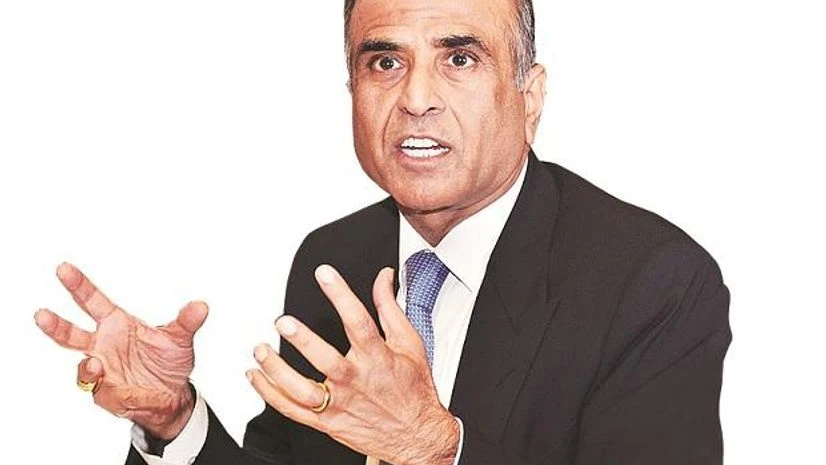Sunil Bharti-led Bharti Group has pledged Rs 7,000 crore, which is 10 per cent of its family wealth, for philanthropy. A large chunk of this will be used to set up Satya Bharti University for Science and Technology, modelled on MIT, Stanford, and Berkeley. The family decided to step up philanthropy when Mittal turned 60 last month. The group is counting on tie-ups with Facebook, Google, Microsoft, Apple, and SoftBank for its university, likely to come up in Punjab in three years. “We are not in this for business,” said Mittal, while pointing out there would be no cost of education for underprivileged students. But students from the general stream will pay a fee. Bharti Enterprises Chairman Sunil Mittal spoke to Nivedita Mookerji on the new initiative and more. Edited excerpts:
Does stepping up philanthropy come as a breather after the ongoing telecom war?
Well yes, this is from the heart and not mind. I thought time was ticking and must do something more. We have a great legacy in this space. We are changing the lives of millions of children, giving them education opportunities that they never had before. Now we are stepping up efforts in every possible way. With 10 per cent of family wealth — some Rs 7,000 crore — we will set up this university and build more schools and make a name in that space for us.
How do you really find the space and time to do all this despite whatever is happening in the industry? Do you think the disruption in telecom has come down?
I do a lot of stuff beyond business and the Foundation. There are able CEOs in the group and I’m available 24X7 to them.
Also Read
On your birthday, October 23, you and your family took the decision to pledge 10 per cent of the family wealth to the Bharti Foundation and a large part will go towards a tech-focused university. Who in the family started the conversation?
It’s hard to pin down on who started it. I said I was 60 now and wondered if we could do things differently. One of the kids said, why don’t we step up the work at the Bharti Foundation. And then over dinner, we got everybody’s opinion on pledging 10 per cent of the wealth. Not only did everybody say yes, they thumped the table as well.
Returning to the topic of telecom, do you think disruption has reduced a bit as Reliance Jio has begun raising tariffs?
There’s been some rationalisation but there’s still a long way to go.
The current tariffs are unsustainable. If you see Airtel’s low single-digit rate of return, and other top telcos in losses, it just doesn’t add up. In this industry, we have made tremendous amounts of investment ...
What’s the way out? What will be Bharti’s strategy moving forward?
All the freebies and the crazy offers that are there in the market must subside. India can afford Rs 400 to 500 ($6 to $7) a month for data. India will still be much cheaper than most parts of the world.
With Jio giving competition, and Vodafone merging with Idea, how do you see your market share? Do you see yourself as a winner still?
We are at 34 per cent. With the Tatas, we will be 38 per cent … Vodafone, along with Idea, may be around 40 per cent. One doesn’t know where Jio will end up. Three of us (Jio, Vodafone-Idea, and Bharti) will have to fight it out. We would like to play up for number one position.
Talking of the economy, there’s been a lot on Ease of Doing Business. Do you think number 100 position is good enough for India?
As the PM said, our aim should be to be within 50. He’s very determined but things take time because of states, municipalities, etc. But the good news is that there’s pressure from the top. India’s committed to do better.
Coming back to philanthropy, do you think giving by corporates is increasing? Corporate India has been quite a laggard in that space …
The 1960s, 1970s, and 1980s saw high taxes, doing business was not easy … India was never rich enough to give, it was before that when the Tatas, Birlas, Singhanias were big time into philanthropy. Then it stopped because of the socialistic mindset … Then in the 1990s, it started a bit and in 2000 it started in a big way. More such action will make corporates sit up and create legacies.
Are you going to get into areas other than education?
We started an initiative called Nyaya Bharti for underprivileged undertrials. But dealing with courts etc has been very tough … In Swachh Bharat, we have done a great job. But while those efforts will continue, 90 per cent of our focus will be on education.
Net neutrality is back in focus again. The US is somewhat turning the tables on what was before. What are your thoughts?
In the last debate on net neutrality in India, the noise was so high, that you could not focus. It became like an illogical piece. No telco can get customer attention if you start to throttle them. The debate shifted too far into zero rating etc… Ajit Pai (FCC chief in the US) has said there will be enough safeguards to ensure there’s no discrimination. Let’s see what the US does on the 14th and how India looks at it. Nobody here is talking of unbridled control or gatekeeper.

)
